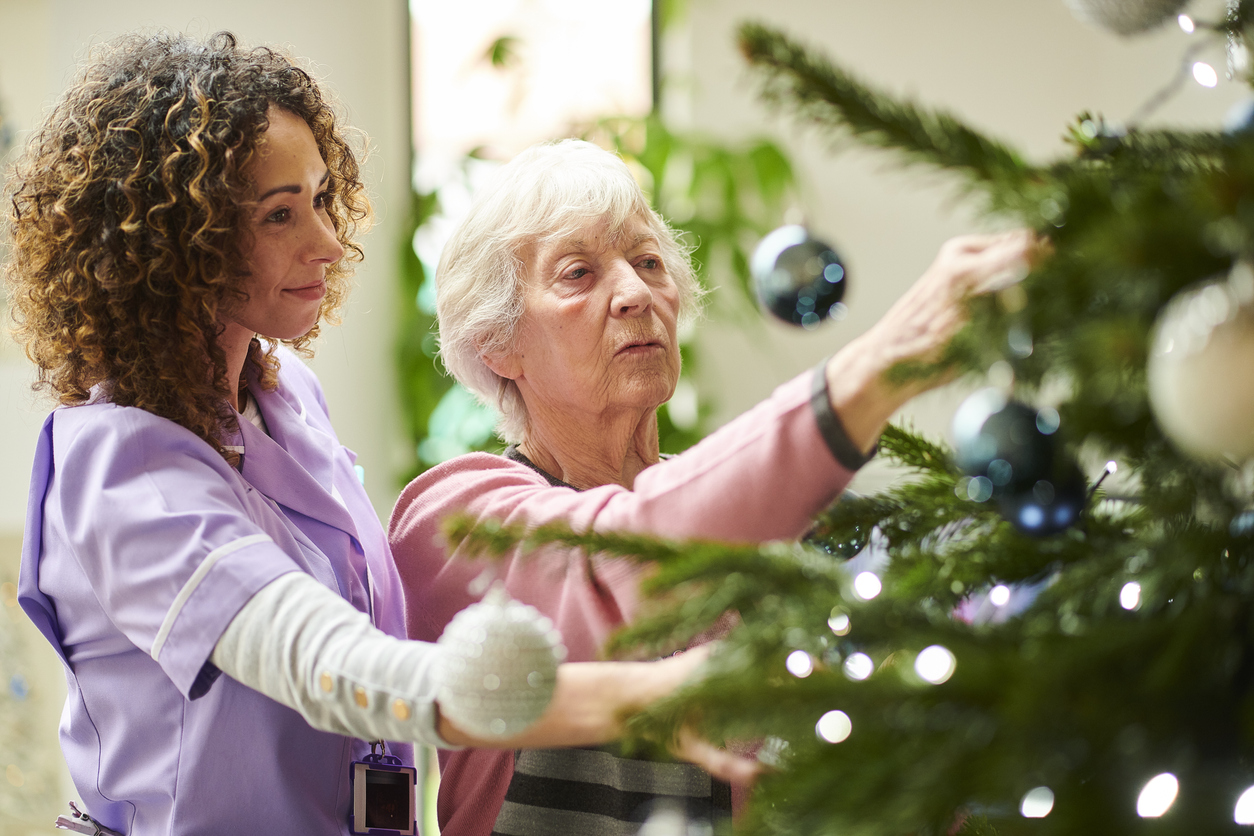Giving the gift of self-care

Subscribe to Catalyst
Subscribe to get our magazine delivered right to your inbox
Related Articles
Subscribe to Catalyst
Subscribe to get our magazine delivered right to your inbox
Related Articles
For caregivers, finding the right balance is key
The holiday season is synonymous with giving. Many of us dedicate our time and attention to causes close to our hearts and to people in need of support. For unpaid or family caregivers, though, giving is more than a seasonal gesture of goodwill. And this year, as the rest of us prepare for a more subdued holiday season under the shadow of COVID-19, these caregivers must find a way to strike a balance between caring for their loved ones and giving back to themselves.
“We know that many caregivers experience heightened levels of stress and anxiety,” said Louise Bradley, the Mental Health Commission of Canada’s (MHCC’s) president and CEO. “Now that the pandemic has upended our routines and altered our best-laid plans, it’s more important than ever for caregivers to re-assess what’s working, and not let their own mental health fall by the wayside.”
Denise Waligora, an MHCC Mental Health First Aid (MHFA) training and delivery specialist, understands this balancing act all too well. “Both my mom and dad have serious physical conditions, and my dad was diagnosed with Alzheimer’s last year,” she explained. “I’m fortunate to be able to work remotely while caring for them, but leaving time for myself hasn’t been easy.”
One of the biggest challenges, she said, is learning to set boundaries. “One evening my mom started listing all the things she wanted us to do after dinner, and I finally had to speak up. I reminded her that after long days filled with appointments and obligations, I needed some downtime in the evenings. As caregivers, we have to recognize when it’s getting to be too much and learn that saying ‘no, not right now’ is OK.”
To Waligora, carving out downtime is an important act of self-care. “Even if it’s limited,” she said, “take whatever time that’s there and don’t feel guilty about it. We all need time to recharge.”
While caregivers of all kinds face similar challenges, those caring for older adults know that supporting their loved one’s mental health can often be more difficult than meeting their physical needs. Fortunately for Waligora, being a facilitator for the MHFA Seniors course has helped her bridge the generational divide.
“I don’t think my parents have ever been told it’s ok to feel the way they do,” she explained. “The course has taught me the importance of validating their fears. It’s also improved my communication skills with my parents and opened conversations that may not have happened previously.”
To help others facing similar communication barriers, Waligora contributed some special insights to the MHCC’s Caring for Older Adults During COVID-19 tip sheet, which offers practical advice to support the mental health of older loved ones.
Equally important is communication from the caregivers themselves. Caregiving can be an isolating job, especially during a global pandemic when social gatherings have all but disappeared. But as Waligora points out, maintaining social connection is invaluable to caregivers. “Never be afraid to reach out to your support system,” she said. “You don’t always have to be the ‘strong’ one — It’s OK to ask for help.”
Bradley agrees. “Caregivers are prone to putting their own mental wellness last,” she said. “But no one can pour from an empty cup. Caring for yourself, whatever form that takes, will help you be a healthier, more effective caregiver.”
To learn more about implementing self-care into your life, read the Mental Health First Aid COVID-19 Self-Care and Resilience Guide. “Caring for a loved one is noble, valuable work,” said Bradley, “but giving yourself the gift of self-care is priceless.”
Amber St. Louis




